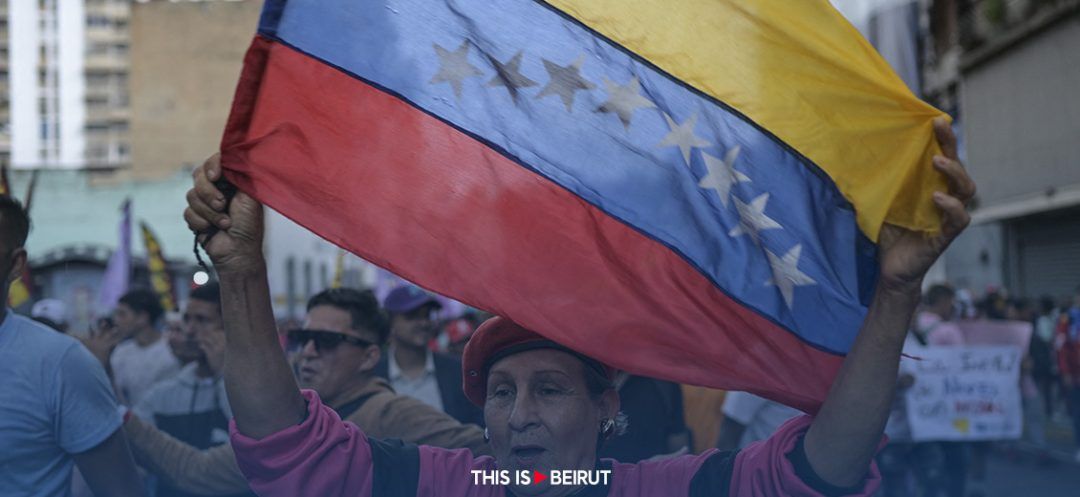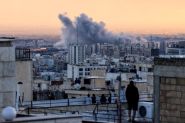- Home
- Middle East
- Venezuelan Opposition Leader Ignores Second Court Summons

©(Yuri CORTEZ/AFP)
Venezuelan opposition presidential candidate Edmundo Gonzalez Urrutia ignored a second summons from prosecutors Tuesday as his coalition denounced "judicial harassment" following President Nicolas Maduro's disputed reelection.
Prosecutors loyal to Maduro want to question the 74-year-old, who is in hiding, in an investigation into his claim that he was the legitimate victor of July 28 elections.
The Unitary Platform opposition coalition insisted Tuesday that its candidate had won the vote "by an overwhelming majority" and was the victim of "judicial harassment."
Maduro, however, forged ahead with his plans for a third six-year term by reshuffling his cabinet, appointing new interior and oil ministers.
Also on Tuesday, opposition leader Maria Corina Machado -- replaced on the ballot by Gonzalez Urrutia at the last minute after the regime barred her from running -- accused Maduro's government of "kidnapping" her lawyer.
Gonzalez Urrutia, who went into hiding shortly after the election, was summoned to appear before prosecutors investigating him for alleged "usurpation of functions" and "forgery of public documents."
The retired diplomat ignored a first summons on Monday, and again failed to show after a second notice was issued for Tuesday.
The announcement of Maduro's reelection sparked protests that left 25 civilians dead, with nearly 200 people wounded and more than 2,400 arrested, according to authorities.
Gonzalez Urrutia last appeared in public at a protest two days after the election.
Maduro has said both he and Machado belonged "behind bars."
Machado called on supporters to turn out for demonstrations on Wednesday against Maduro's "fraud" -- exactly one month after the disputed vote.
It will be the third opposition rally held since the election.
The government has similarly called for demonstrations Wednesday to celebrate its "victory."
Observers say what happens next will depend on whether the international community can exert sufficient pressure on Maduro -- who managed to cling to power despite sanctions that followed his 2018 reelection, which was also dismissed as a sham by dozens of countries.
Since coming to power in 2013, Maduro has presided over an economic collapse that has seen more than seven million Venezuelans flee the country as GDP plunged 80 percent in a decade.
Human Rights Watch said Tuesday that holding fresh elections in Venezuela, as proposed by the presidents of Brazil and Colombia, would make a "mockery" of the process.
Javiar Tovar, with AFP
Prosecutors loyal to Maduro want to question the 74-year-old, who is in hiding, in an investigation into his claim that he was the legitimate victor of July 28 elections.
The Unitary Platform opposition coalition insisted Tuesday that its candidate had won the vote "by an overwhelming majority" and was the victim of "judicial harassment."
Maduro, however, forged ahead with his plans for a third six-year term by reshuffling his cabinet, appointing new interior and oil ministers.
Also on Tuesday, opposition leader Maria Corina Machado -- replaced on the ballot by Gonzalez Urrutia at the last minute after the regime barred her from running -- accused Maduro's government of "kidnapping" her lawyer.
Gonzalez Urrutia, who went into hiding shortly after the election, was summoned to appear before prosecutors investigating him for alleged "usurpation of functions" and "forgery of public documents."
The retired diplomat ignored a first summons on Monday, and again failed to show after a second notice was issued for Tuesday.
Rival Demonstrations
The announcement of Maduro's reelection sparked protests that left 25 civilians dead, with nearly 200 people wounded and more than 2,400 arrested, according to authorities.
Gonzalez Urrutia last appeared in public at a protest two days after the election.
Maduro has said both he and Machado belonged "behind bars."
Machado called on supporters to turn out for demonstrations on Wednesday against Maduro's "fraud" -- exactly one month after the disputed vote.
It will be the third opposition rally held since the election.
The government has similarly called for demonstrations Wednesday to celebrate its "victory."
Observers say what happens next will depend on whether the international community can exert sufficient pressure on Maduro -- who managed to cling to power despite sanctions that followed his 2018 reelection, which was also dismissed as a sham by dozens of countries.
Since coming to power in 2013, Maduro has presided over an economic collapse that has seen more than seven million Venezuelans flee the country as GDP plunged 80 percent in a decade.
Human Rights Watch said Tuesday that holding fresh elections in Venezuela, as proposed by the presidents of Brazil and Colombia, would make a "mockery" of the process.
Javiar Tovar, with AFP
Read more



Comments